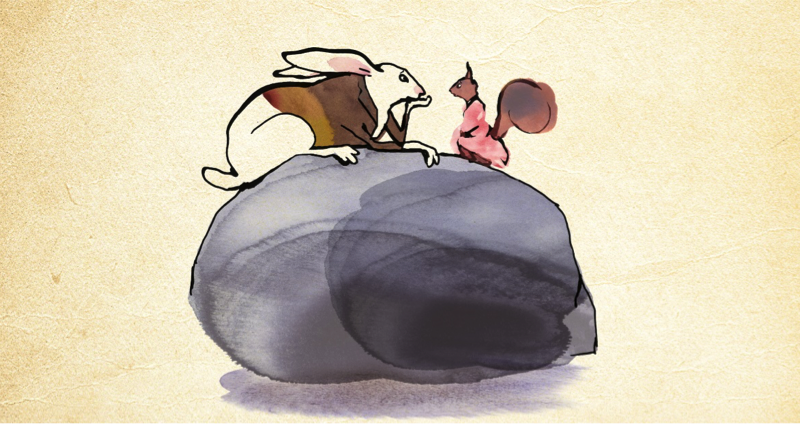
Vasudha Rai’s Glow brings back the charm of Indian recipes for beauty and nourishment of your skin. From fruits and vegetables that are readily available to the potent Ayurvedic herbs, this book tells you the ways in which you can get the radiance from within. These remedies help in building strength and immunity, as well as cleanse your skin, body and mind.
Here is an excerpt on vitality from the book:
Vitality
We operate out of two emotions—fear and love. Both sentiments make us truly human. However, they’re the opposite of each other. When we work out of fear, the result is usually weak and lacklustre. But when we do something from a place of love, the results are inspirational.
It’s no different with food.
In today’s world there’s so much misplaced knowledge that we eat out of fear. Will this make me fat? Am I allergic to this? Should I feel guilty after an indulgence? With each bite we become more afraid, and consequently, our bodies shut down, refusing to accept nourishment. even when we treat ourselves, we become overwhelmed with guilt, which prevents us from truly enjoying the moment. You see, it’s not just what you eat that is important but also how you eat it. The more you relish your food, the more it will energize you.
Over the last few decades many trends have come and gone. First, fat was the enemy and now it’s our best friend. Meat was also glorified for a brief moment, while carbs were pilloried for causing weight gain. After writing on health and beauty for many years, the only thing I’ve learnt is that today’s remedy could be tomorrow’s poison. Foods that nourish you greatly could be stigmatized because of new research. And ingredients that were considered poisonous may be celebrated again.
The problem begins when we focus just on the outward manifestation of beauty. When washboard abs become more important than an energized body, we fail in the quest for health. The perpetual obsession with superfoods takes away the pleasure of eating. It separates us from the time-tested knowledge of our ancestors. While traditions have always been relevant, you’ll find that they are more applicable today than ever before. In fact, at a time when we’re bombarded with a new trend every day, ancient, time-tested wisdom is worth our trust.
Vitality is the feeling of freshness, energy and strength. It helps us look forward to the day and handle each task with ease, including the chore of self-care. We need to be strong and energized first, before even thinking about the other aspects of beauty such as clarity and radiance. In this part we’ll focus on the basics that make us robust—oils, grains, unrefined sugars and herbs—ingredients from our kitchens that must be included in our everyday diet.
I’ve included carbs and sugars in this selection because I don’t believe in completely eliminating any food group. While I limit my consumption of wheat, milk and sugar because they cause inflammation, I haven’t removed them entirely from my diet. It’s essential to enjoy everything in moderation. Unless you’re intolerant or allergic to any ingredient, there’s really no reason to completely cut it out.
The need of the hour is to stop treating meals as a battlefield. We must eat with the aim of boosting health and longevity, instead of trying to create only the outward shell of a perfect body. After all, there can be outward beauty only when there’s inner health.
***
Coconut
It is the ultimate symbol of joy. Its scent is like a vacation for the mind, its water instantly energizes a tired body and a splash of its milk makes everything tastier. In India, the coconut is revered greatly. We break it open before auspicious occasions as an offering to the gods. It’s so purifying, healing and strengthening that it is essential to bless any celebration. The last decade or so has been especially good for the coconut. We have seen a huge surge in its popularity. We’re applying the oil to frayed cuticles, split ends, dry skin and even mixing spoonfuls in green tea and coffee. But, as with most natural ingredients that are celebrated, coconut is now being demonized too.
A 2017 research conducted by the American Heart Association found that coconut oil has as much (if not more) fat than butter and even beef fat. And, therefore, the study said that it increases cholesterol and causes weight gain. I don’t find it surprising. At the end of the day coconut oil is a saturated fat, and any fat (whether it’s saturated or unsaturated) must not be used in excess. The problem arises when we put food up on a pedestal so high that any shortcomings aren’t even considered a possibility.
In the last decade or so we have leapfrogged from one food to another, calling each the holy grail of health. There were goji berries, avocadoes, wheat bran, acai, cacao and even red meat, which was part of the Atkins diet. The problem is that the moment a food becomes a fad, we start overusing it without proper knowledge. However, there really is no one superfood that resolves all our problems. All plants and all foods have superpowers—each with its own unique property.
Coconut oil has some wonderful benefits, but too much will, of course, increase cholesterol. And if you consume it with ice cream or a cold drink, it will congeal inside your body because it is a saturated fat just like ghee. But to demonize it to an extent where it’s comparable to beef fat is an exaggeration. The one big difference between the two is that beef fat is inflammatory and coconut oil (being plantbased) is anti-inflammatory. Therefore, they’re the opposite ends of the spectrum: inflammation causes disease and foods that control it heal our bodies.
Science
What can be said about coconuts that isn’t already known? They’re rich in trace minerals such as manganese, iron, zinc, copper and selenium, which help in hormone regulation, cell regeneration and even digestion. They also contain small amounts of B vitamins and a ton of fibre, but the real USP is a certain medium-chain fatty acid called lauric acid. When consumed, it turns into monolaurin, which is strong antimicrobial agent that fights against viral and yeast infections. In addition, coconut oil also contains caprylic acid (a powerful fungus-fighter) and capric acid (a potent yeast killer). Because of these properties it is given to people with poor gut health, as one of the main reasons for that is candida (or yeast) overgrowth.
While a small amount of candida is essential for healthy digestion, in excess it can damage organs and release toxic by-products into the bloodstream. Signs of candida overgrowth include regular migraines, intense sugar cravings, bloating, anxiety, digestive issues and low energy. The three acids mentioned above form a powerful antidote that helps break down candida fungus in the body and restore healthy digestion. A safe amount of coconut oil that you can consume daily is 1 tablespoon. If, however, after a couple of months, you don’t see any improvement in your skin, mood or digestion, increase the dosage with the help of a certified nutritionist. Do keep in mind that some of the prime causes for this overgrowth are sugar, wine and antibiotics.
Coconut water is a highly isotonic fluid, meaning the electrolytes in it are very similar to our blood plasma. Therefore it revives us instantly. It’s like a hydrating injection, balancing the electrolytes immediately and fortifying the body with amino acids. Coconuts are alkaline in nature and cleansing for the body, which makes their water the perfect drink to kick-start your day.
Coconut meat is high in fibre and therefore helps promote gut health. The MCTs (medium chain triglycerides) in its oil break down as ketones, which serve as fuel for the brain. This is why they’re useful for memory problems and improving brainpower.
Coconut-and-Clay Toothpaste
- 2 teaspoons bentonite clay
- 1½ teaspoons baking soda
- ½ teaspoon clove powder
- ½ teaspoon cinnamon powder
- 2 teaspoons coconut oil
- ½ teaspoon activated charcoal
- A few drops of peppermint oil
- Mix the bentonite clay, baking soda, clove power and cinnamon power.
- Add the coconut oil, activated charcoal, a few drops of peppermint oil and a bit of distilled water and mix it all.
- Never use a metal spoon or container to make or store this toothpaste as the negative ions in the bentonite clay will bond with the positive charge in many toxins from metals.
- This amount is enough for two people for a month. Keep it stored in a glass jar and do not use a metal spoon to scoop it out.
- This toothpaste helps clean and whiten the teeth without the harmful toxins (such as fluoride) present in commercial toothpastes.
- Instead of using and throwing plastic tubes, you can also reduce waste by making your own toothpaste.
———-
While it is possible to fake great skin with make-up, you can only be truly radiant when you nourish your body from within. After all, outer beauty is only a symptom of inner health.
AVAILABLE NOW









